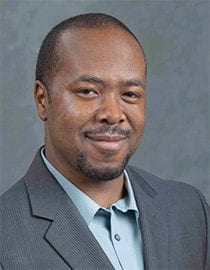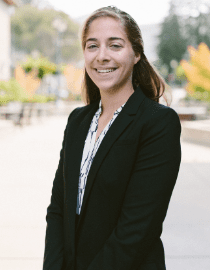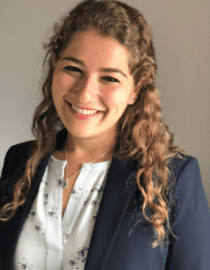By Andrew Cohen
Early in his academic career, Berkeley Law Professor Bertrall Ross suffered from what he calls “extreme imposter syndrome.” Coming from a different class and race background than most of his colleagues, he conformed to a teaching style that students were used to seeing.

He dressed up, maintained a level of classroom hierarchy, and used a rather formal teaching approach. But that cut against the grain of Ross’s true nature, and “students saw it for what it was: inauthentic,” he says. “Over time, I learned to be more myself.”
That transition, to facilitating learning through joint exploration of a legal problem, continues to pay off — both for Ross and his students. The latest evidence: winning Berkeley Law’s annual Rutter Award for Teaching Distinction, established in 1995 by the late philanthropist, lawyer, educator, and author William Rutter. The award honors an instructor who inspires students and demonstrates a deep commitment to teaching.
“I’m always striving to create a classroom environment in which the students feel ownership over their learning,” says Ross, who joined Berkeley Law in 2010. “The dialogue with students is the thing I enjoy most about teaching. It allows me to participate more actively in their learning process.”
He adds that doing so at Berkeley Law, where he teaches Legislation, Election Law, and Constitutional Law, is especially rewarding.
“Berkeley Law’s diversity is not only reflected in the percentage of students from different racial, ethnic, gender, and class backgrounds, but also in their experiences that very much inform my views of law, policy, morality, and justice,” Ross says.
Engaged beyond the classroom
In addition to fueling Berkeley Law’s teaching excellence and scholarly prowess, Ross says professors should aim to uphold the faculty’s reputation for being accessible to, engaged with, and helpful for students.
“That’s extremely important,” he says. “What we do in the classroom is only part of the teaching and learning process. Some of the most important teaching and learning occurs in office hours where you can meet with students one-on-one and in groups to really crystallize lessons they absorbed in the classroom.”
Ross also relishes meeting with student groups about issues that are not always deeply explored in class, such as police violence, racial oppression, and inequality.
“I try to participate in as many student events that I get invited to as possible because I think of these engagements as central to my teaching and mentorship responsibilities,” he says.
That outreach clearly resonates with current and past students. Kim Plumer ’21, who has taken three courses taught by Ross, points to his popular office hours as a telling sign of his dedication to both teaching and serving students beyond the classroom.
“Professor Ross is unusually giving with his time, especially in the chaotic weeks around exams,” she says. “He gave students access to old exams that they could complete and send to him for detailed feedback, which was immensely helpful and surely a significant lift on his part. He never made this above and beyond support feel like a chore and was always open to drifting into discussions of career goals, politics, or any real-life struggles that his students encountered.”
Versatile expertise
Last year, Ross was appointed to the Administrative Conference of the United States, which recommends improvement to how federal regulations are promulgated and how federal programs are administered. He also received the prestigious Berlin Prize, a semester-long residential fellowship given to top scholars, writers, composers, and artists from the United States, and will examine competing conceptions of self-government that culminated in the 15th Amendment.

The chair of Berkeley Law’s Faculty Appointments Committee from 2018 to 2020, Ross helped bring in a whopping nine new standout educators in 2019. In that role reviewing possible faculty hires, he saw firsthand how the school prioritizes teaching.
“Candidates’ potential as a teacher and mentor of our students is a central ingredient in how many Berkeley Law faculty members assess candidates, which comports with how core teaching is to the school’s mission,” Ross says. “A critical component of teaching that I think might be undervalued in other institutions that Berkeley Law faculty value is how well candidates will advance the equity and inclusion values of our institution.”
Melissa Adamson ’17, who took Constitutional Law and Statutory Interpretation with Ross, calls him “a phenomenal educator who has a true gift for making complex legal concepts accessible to students.”
Lauding his “authentic enthusiasm for teaching” that made “even the drier aspects of the law interesting and fun,” she credits Ross for also empowering students to consider whether certain legal frameworks should be changed — and to challenge legal areas they find flawed or unjust. “He is an absolute joy to learn from and I’m so thrilled that his dedication to his students is being recognized,” Adamson says. “Berkeley Law is lucky to have him.”
Tailored teaching
Plumer appreciates how Ross shows respect for his students’ time and opinions. One example: “Instead of making his students buy a casebook and read lengthy opinions where much of the legal discussion is irrelevant, he curates our readings on his own so we don’t have to make an unnecessary purchase or waste any time … It’s indicative of the respect he consistently displays for his students and inspires us to be engaged and focused in class discussions.”

Ross also makes a point to deviate from the assigned materials and incorporate current events into his lessons and discussions for class. In 2020, he had ample occasion to do just that while teaching Election Law.
“I think it’s important that students see and recognize law in action,” he says. During election years, when students closely follow developments and come to class with pointed questions and opinions, Ross observes how “the timeliness of issues we cover not only makes classroom discussions compelling, but it also makes law more concrete and relevant for the students.”
Plumer appreciates his dedication to perspective, and to ensuring that students understand fully every issue and viewpoint, “no matter how firmly ingrained we were in our stance on the matter.”
During a class on gerrymandering, she recalls, Ross drew differently shaped districts on a wipe board and discussed various scenarios. “It pushed students to understand that fairness was not a static concept when it comes to redistricting and that many popular arguments on the topic didn’t address the problem in full,” Plumer says. “This is emblematic of his larger teaching style.”